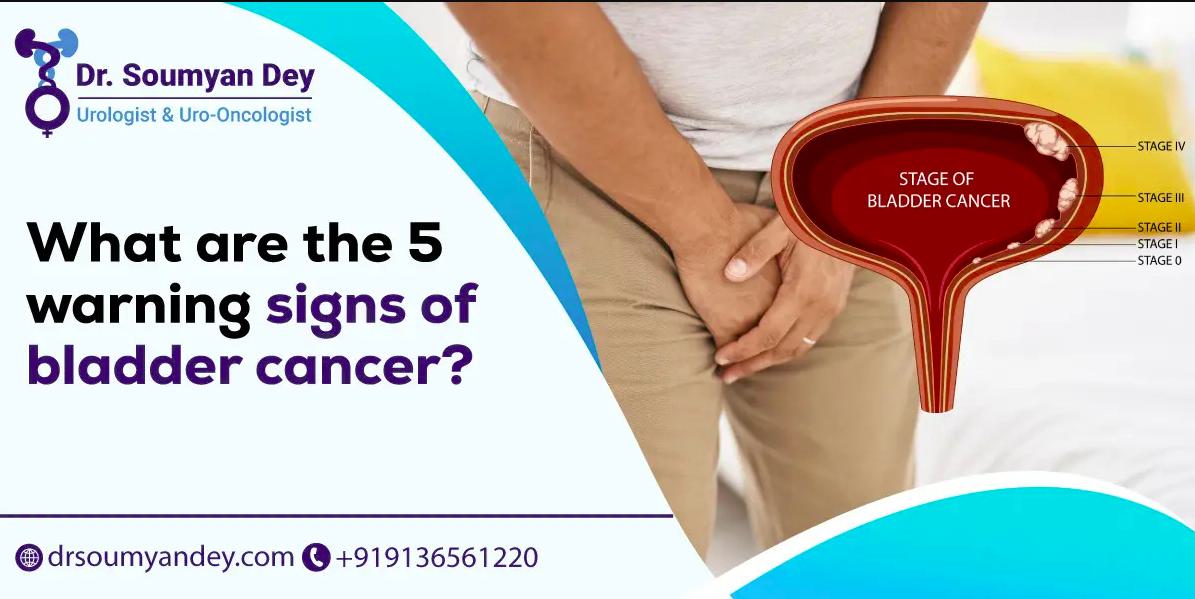Bladder cancer is among the most common cancers affecting the urinary system, yet many people remain unaware of its early signs. Detecting the disease in its initial stages can significantly improve treatment outcomes and survival rates. Unfortunately, the symptoms are often subtle, leading to late diagnoses and more complex treatments.
Understanding the early signs of bladder cancer can help individuals seek medical advice promptly, reducing the risk of complications. This guide provides a comprehensive overview of bladder cancer, from its causes and symptoms to treatment options and support for patients, so you can make informed decisions about your health.
Definition and Overview
Bladder cancer is a type of cancer that begins in the cells of the bladder, the organ responsible for storing urine before it exits the body. Most bladder cancers start in the urothelial cells lining the inside of the bladder. It can develop slowly or aggressively, depending on the type and stage of the disease.
Types of Bladder Cancer
Bladder cancer can be classified into several types, including:
- Urothelial carcinoma (transitional cell carcinoma): The most common form, accounting for about 90% of cases.
- Squamous cell carcinoma: Usually linked to chronic irritation or infection.
- Adenocarcinoma: A rare type that develops from glandular cells in the bladder.
Each type requires a tailored approach to diagnosis and treatment.
Causes and Risk Factors
While the exact cause of bladder cancer is not always clear, several factors increase the risk:
- Smoking: The leading cause, as tobacco chemicals accumulate in the urine and damage bladder cells.
- Exposure to chemicals: Industrial workers handling dyes, rubber, or paint are at higher risk.
- Chronic bladder irritation: Frequent infections or prolonged use of catheters may contribute.
- Age and gender: More common in people over 55 and in men compared to women.
- Family history and genetics: A family history of bladder cancer may raise susceptibility.
Symptoms and Early Warning Signs
Recognizing the early signs of bladder cancer is essential for timely diagnosis. Common symptoms include:
- Blood in urine (hematuria): The most noticeable and common early symptom.
- Frequent urination: A sudden increase in urinary urgency without clear cause.
- Painful urination (dysuria): Burning or discomfort while urinating.
- Lower back pain or pelvic pain: May occur in more advanced cases.
These signs may mimic less serious conditions, such as urinary tract infections, so medical evaluation is crucial.
Diagnosis
Doctors use a combination of tests to confirm bladder cancer, including:
- Urinalysis and urine cytology: To check for abnormal cells.
- Cystoscopy: A camera inserted into the bladder for direct examination.
- Imaging tests (CT scan, MRI, ultrasound): To detect tumors and their spread.
- Biopsy: The definitive method for confirming bladder cancer.
Treatment Options
Treatment depends on the type, stage, and overall health of the patient. Options include:
- Surgery: Ranges from removing tumors (TURBT) to partial or complete bladder removal.
- Chemotherapy: Administered before or after surgery to kill cancer cells.
- Radiation therapy: Used for localized treatment or when surgery is not possible.
- Immunotherapy: Boosts the body’s immune system to fight cancer cells.
- Targeted therapy: Focuses on specific cancer cell mechanisms to stop growth.
Prevention and Lifestyle Recommendations
While not all cases can be prevented, adopting healthy habits reduces the risk of bladder cancer:
- Quit smoking and avoid exposure to secondhand smoke.
- Limit exposure to harmful chemicals at work.
- Drink plenty of water to dilute harmful substances in urine.
- Eat a balanced diet rich in fruits and vegetables.
- Attend regular health check-ups if you are at higher risk.
Prognosis and Survival Rates
Prognosis depends on the cancer’s stage at diagnosis. Early-stage bladder cancer has a high survival rate, with five-year survival exceeding 70% in many cases. Advanced stages, however, are more difficult to treat and may require aggressive therapies. Regular monitoring and follow-up care are crucial for long-term outcomes.
Latest Research and Innovations
Recent advancements in bladder cancer research bring hope to patients. Innovations include:
- Genetic testing: Helps identify patients at higher risk.
- Personalized medicine: Tailors treatment based on individual genetic profiles.
- New immunotherapies: Show promising results in treating advanced cases.
Ongoing clinical trials continue to improve early detection and treatment methods.
Coping and Support for Patients
A bladder cancer diagnosis can be overwhelming, but support systems are available:
- Support groups: Provide emotional strength and shared experiences.
- Counseling and therapy: Help patients and families manage stress.
- Nutritional guidance and rehabilitation: Aid recovery and improve quality of life.
Seeking both medical and emotional support is key to coping with bladder cancer.
Conclusion
Recognizing the early signs of bladder cancer can make a significant difference in treatment success and survival rates. With timely diagnosis, effective treatment, and lifestyle adjustments, many patients live long and fulfilling lives after a diagnosis. Staying informed and proactive about your health is the best step you can take.
FAQ
1. What is usually the first sign of bladder cancer?
Blood in the urine, often painless, is the most common early sign.
2. Can bladder cancer be cured if caught early?
Yes, early-stage bladder cancer is highly treatable with a good prognosis.
3. Who is most at risk for bladder cancer?
Smokers, older adults, men, and those exposed to industrial chemicals are at higher risk.
4. How often should I get checked for bladder cancer?
If you have risk factors or symptoms, consult a doctor immediately. Regular check-ups may be recommended based on your risk profile.
5. Does diet affect bladder cancer risk?
A healthy diet rich in vegetables and hydration may reduce the risk, though it cannot completely prevent bladder cancer.

